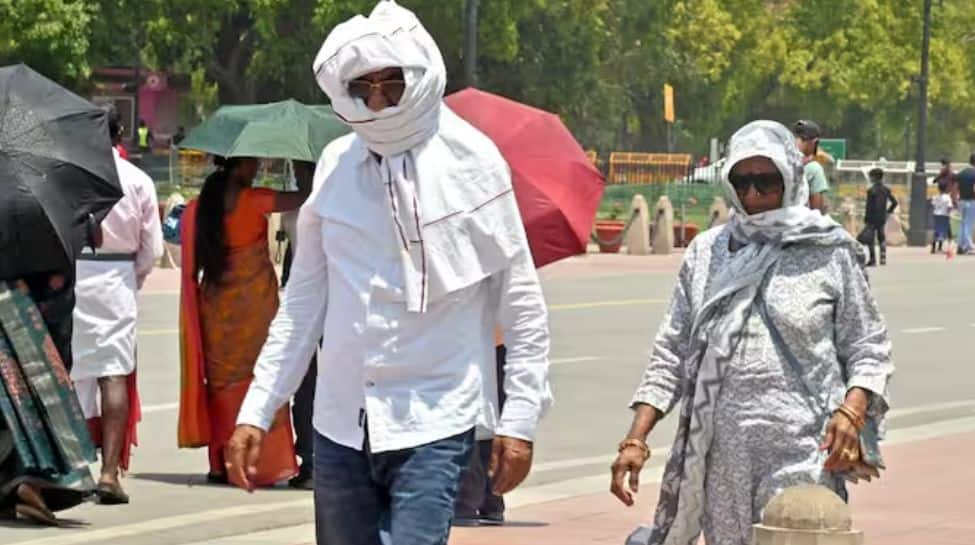A 40-year-old man from Bihar's Darbhanga died at Delhi's Ram Manohar Lohia hospital yesterday after he suffered a heatstroke during the record-breaking heatwave in the national capital. The man was admitted to the hospital late Monday night.
A doctor who attended to him said he was living in a room with no cooler or fan and had a high fever. The body temperature, the doctor said, crossed the 107 degrees Celsius mark -- nearly 10 degrees above normal. This is the first heat-stroke death reported in Delhi this summer.
Doctors at the unit said the patients they attended to were “classic cases of heat stroke”. There are two types of heatstroke, a doctor explained: “Exertional heat is generally because of physical overexertion in hot, humid conditions and can develop within few hours”. Classic heatstroke cases occur “due to age or underlying health conditions”.
As Dr Mukesh Mehra, Director, of Internal Medicine, at Max Super Speciality Hospital, Patparganj, points out, "Due to prolonged exposure to high temperatures and insufficient hydration, sometimes the body's thermoregulatory mechanisms fail, leading to heat stroke. This critical heat-related illness is marked by a body temperature 104°F (40°C) or higher, and if not addressed promptly, it can lead to health risks which can even turn fatal."
How To Identify Heat Stroke Symptoms
Dr Mukesh Mehra points out some heat stroke symptoms:
1. When the core body temperature is over 104°F (40°C), it means there's hyperthermia - which means the body is unable to dissipate heat.
2. Heat stroke can cause the central nervous system to malfunction. You can see a changed mental status which can include confusion, delirium, irritation to even coma. These stem from thermal injury to the brain.
3. One can suffer from hot, flushed, and dry skin. There might be no sweating as evaporative cooling stops.
How To Prevent Heat Stroke
Lowering the heat stroke risk involves strategic interventions, says Dr Mukesh Mehra. He lists few following steps:
1. Stay Hydrated: Ensure that there is adequate fluid intake so that there is evaporative cooling. This way, you can prevent dehydration-related thermal strain.
2. Manage Your Environment: Limit exposure to the sun during peak heat hours, seek shade, and opt for cooling aids like fans or air conditioning.
3. Pick The Right Clothes: Wear clothes made of lightweight, breathable fabric that allows heat dissipation and lets you perspire.
















